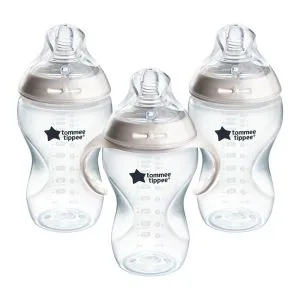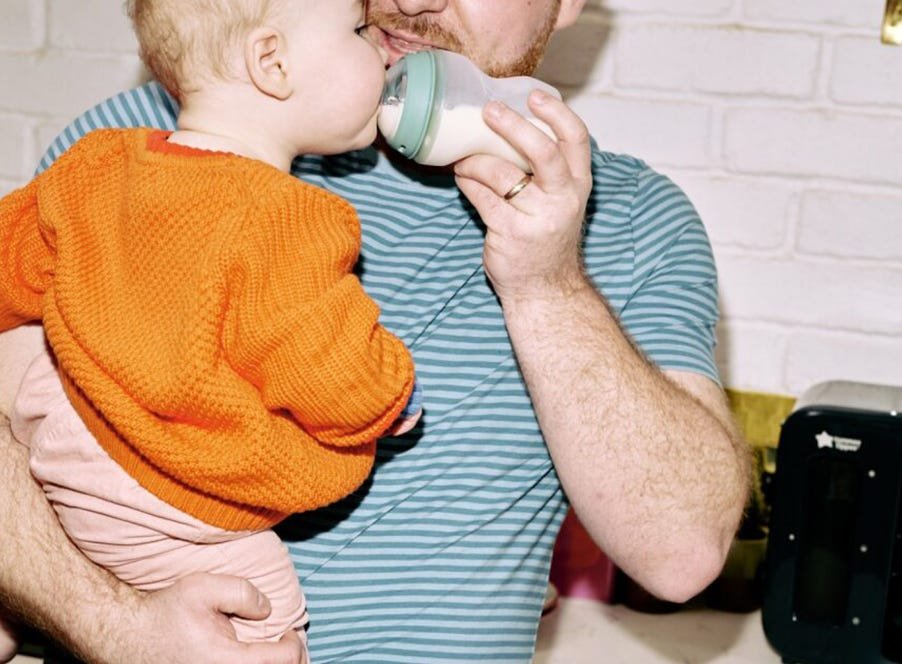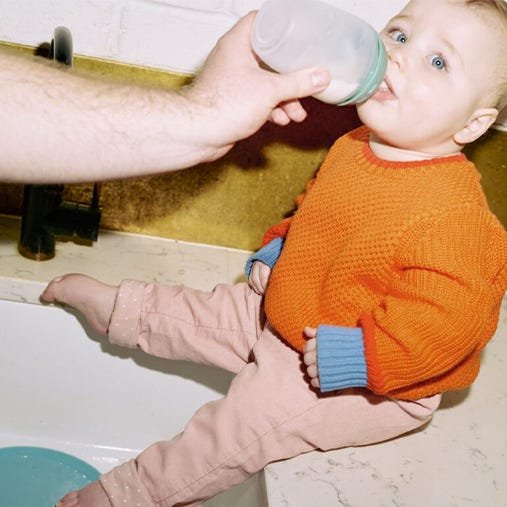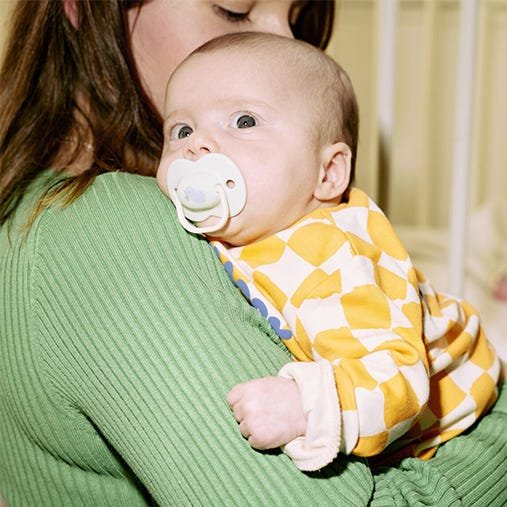Although expecting a new baby is an exciting time, it can take longer for some parents to bond with their baby than others.
Research has found that in the US, 20% of new parents report a lack of real emotional attachment to their newborn during the initial hours after birth. This struggle to bond can be more of a challenge for dads, who don't have the same opportunity to bond through carrying, delivering, and nursing the baby that moms do.
Don't worry though, this bond will grow over time, and there are lots of ways that dads can help form a special connection with their baby. Let's run through why dads may struggle to bond, cover the signs that dad is finding it difficult, and provide some top tips for dads to bond with their baby.
Why dad might be struggling to bond with baby
Partners don't have the same experience that moms do during pregnancy. They also don't experience the same surge in oxytocin levels after birth.
For some dads, societal bias can push them away from hands-on parenting roles into more of a supporting one. A dad's relationship with their new baby can also be impacted by factors such as having a lack of a positive parental role model in their childhood, as well as stresses, such as work challenges and mental health problems.
According to the American Academy of Paediatrics, up to 10% of fathers develop paternal postpartum depression. This can all lead to dad not bonding with their baby as they should.
Signs dad hasn't bonded with baby
Although becoming a new parent can be a confusing time, some signs may indicate that a dad is struggling to bond with their baby. If a dad notices he is having difficulty with any of the following, or mom is spotting these signs, it might be time to have a discussion and try some simple ways to begin to build an emotional connection:
- Feeling intimidated or uncomfortable around the baby
- Having difficulty with day-to-day tasks, like feeding and changing a diaper
- Worrying they don't have enough time or feeling like they're not part of the baby's routine
- Not understanding the baby's cues or preferences
- Being put off by things like spit-up or diaper changes
- Frequent crying from the baby when dad is holding them, or they don't seem to recognize dad
- Showing signs of jealousy for mom and baby's connection
Ways for dad to bond with their newborn
Dads play a huge part in a child's development. As well as supporting their partner during pregnancy, there're many ways for a dad to form a strong bond with their newborn once they arrive.
Have close skin-to-skin contact
In those first few moments, skin-to-skin contact with your child is a wonderful experience. So, don't be shy to get your shirt off in the delivery room to cuddle your newborn. It's never too early to build that special bond, and you can continue to enjoy skin-to-skin cuddles with your little one as they grow.
Share the responsibilities with your partner
Taking charge of half of the baby's feeds means more time with your baby for you, and some much-needed rest for your partner!
If your partner is exclusively breastfeeding, you can pitch in by making sure they're comfortable, ensuring that they have everything they need close by, and burping your baby after their feed.
Give your little one a massage
Regular baby massages are a great way for you to bond with your little one and help them to feel calm and relaxed before bedtime.
To get started, lay your little one on a flat surface and gently rub your palms together with baby oil to warm them. Sing and talk to your baby to get them giggling and massage lightly. Watch how your baby responds and if they seem uncomfortable, simply try using a lighter touch.
Carry them close
Instead of pushing your little one around in a pram or buggy when you head out and about, try using a sling or carrier to keep them close. Whether you're going for a walk, running errands, or loading the dishwasher, you'll find it much easier to move around!
Get silly
Keep your baby entertained by pulling your best silly faces. You never know, one of your cheesy grins or goofy dance moves could trigger your little one's first smile!
Contribute to diaper duty
As well as being a rite of passage for any new parent, changing diapers also provides a great opportunity to laugh, chat and bond with your baby.
Tell them a story
Babies begin to hear familiar voices when they're still in the womb, so it's never too early to start reading to your little one!
Your voice stimulates your baby's interest in sound, and this helps them to develop important listening skills. At the early newborn stage, your baby doesn't care what you read to them - it's simply the soothing sound of your voice that they'll love. So, cuddle up and read aloud.
Spend time with other parents
Whether you attend classes and local baby groups with your partner or go to dad-only gatherings, it's a good idea to reach out to and build connections with other parents who are going through the same things as you.
How to encourage father bonding with baby during pregnancy
To enhance the father-baby bonding experience, dads can start bonding with their little one before they're born. You can do this by:
- Putting your hand on your partner's belly to feel the baby move
- Speaking to the baby in the womb - babies can hear from around 18 weeks of pregnancy
- Attending prenatal classes, ultrasound appointments and being in the delivery room during the birth
The importance of fathers bonding with newborn babies
There are so many positive benefits of dads forming a bond with their newborn.
Successful bonding can help decrease stresses in later life for dads and has a positive impact on the mental health of their child. It also reduces the risk of paternal postpartum depression.
Dad-baby bonding also helps promote weight gain in preterm infants and supports their overall development.
If this content reminds you of your own experiences or makes you think of someone you know and you feel concerned or uncomfortable, please head to the PSI website for information about perinatal mental health resources that may be able to help.









